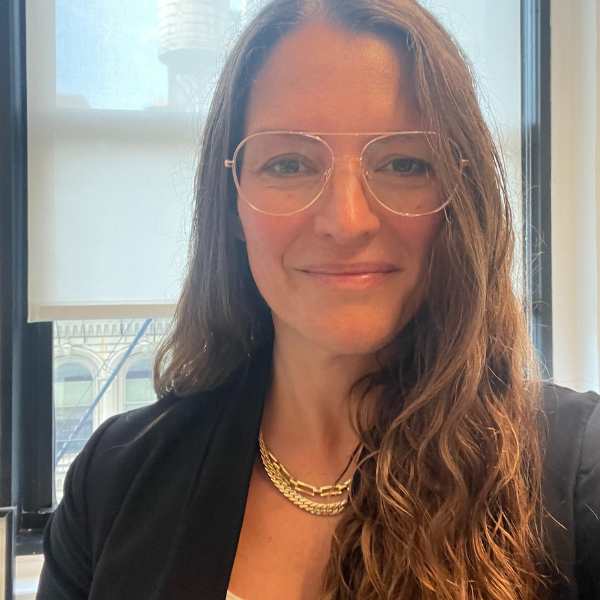How (and When) the Defense Might Successfully Communicate with Labs and Why Labs Should Listen
Home » How (and When) the Defense Might Successfully Communicate with Labs and Why Labs Should Listen
- Session
How (and When) the Defense Might Successfully Communicate with Labs and Why Labs Should Listen
- September 19, 2023 //
- 1:45 pm -
- 2:10 pm //
- Hyatt Regency at the Colorado Convention Center, Centennial Ballroom
There are many reasons the voice of the defense does not get considered during testing, hypothesis building, comparison and reporting of DNA evidence. It could be because testing is completed and consumed before counsel is assigned or any arrest made. It could be a defense request is made but the lab does not agree to honor it, not appreciating its value. Or it could simply be that the defense perspective is always the defense prerogative, and they choose to remain silent. The result, however, is that the information and context that accompanies DNA evidence are often exclusively provided by law enforcement.
In recent years, the forensic community has begun to recognize the importance of the defense voice in DNA testing and hypothesis building.[1] The defense may have critical information that could change the results significantly. Knowing whether individuals are biologically related may alter how a sample is interpreted. Obtaining a critical elimination sample may impact the confidence we have in an elusive minor contributor or shed light on a defense theory of the facts. Adding a comparison sample where none was previously considered could exonerate the innocent.
This presentation will use four real life case work and outcomes to support the central thesis that incorporating defense input to the DNA lab’s analysis and hypothesis building, where possible and when available, leads to more accurate and just results. These examples include a dismissal of a homicide where an additional comparison was requested, the discovery of exculpatory evidence when the data was further investigated, a startling shift in a statistical result with a closer look, and finally, an unfortunate illustration of the problems that arise when labs refuse to honor the defense’s request.
The labs must take these requests seriously, even when they do not understand the purpose or relevance of the defense request. This presentation will encourage (and hopefully inspire) labs to be more open to the perspective of the defense. The author will also address some of the challenges inherent in defense requests for additional testing or comparison and explore considerations relevant to the defense in pursuing these options.
[1] Organization of Scientific Area Committees, Assigning Propositions for Likelihood Ratios, Standard #4.7.2, “The Laboratory shall reassess the data under a new pair of propositions if presented with a reasonable request (i.e., supported by the associated data, and presented in a timely manner) from either party regarding an alternate proposition pair.” (avail at https://www.nist.gov/system/files/documents/2020/05/08/assigning_propositions_for_likelihood_ratios_OSAC%20PROPOSED.pdf). See also Gill, P, et al., DNA commission of the International society for forensic genetics: Assessing the value of forensic biological evidence – Guidelines highlighting the importance of propositions: Part 1: evaluation of DNA profiling comparisons given (sub-) source propositions. FSI Genetics, Vol. 36, p189-202, 9/1/18.
There are many reasons the voice of the defense does not get considered during testing, hypothesis building, comparison and reporting of DNA evidence. It could be because testing is completed and consumed before counsel is assigned or any arrest made. It could be a defense request is made but the lab does not agree to honor it, not appreciating its value. Or it could simply be that the defense perspective is always the defense prerogative, and they choose to remain silent. The result, however, is that the information and context that accompanies DNA evidence are often exclusively provided by law enforcement.
In recent years, the forensic community has begun to recognize the importance of the defense voice in DNA testing and hypothesis building.[1] The defense may have critical information that could change the results significantly. Knowing whether individuals are biologically related may alter how a sample is interpreted. Obtaining a critical elimination sample may impact the confidence we have in an elusive minor contributor or shed light on a defense theory of the facts. Adding a comparison sample where none was previously considered could exonerate the innocent.
This presentation will use four real life case work and outcomes to support the central thesis that incorporating defense input to the DNA lab’s analysis and hypothesis building, where possible and when available, leads to more accurate and just results. These examples include a dismissal of a homicide where an additional comparison was requested, the discovery of exculpatory evidence when the data was further investigated, a startling shift in a statistical result with a closer look, and finally, an unfortunate illustration of the problems that arise when labs refuse to honor the defense’s request.
The labs must take these requests seriously, even when they do not understand the purpose or relevance of the defense request. This presentation will encourage (and hopefully inspire) labs to be more open to the perspective of the defense. The author will also address some of the challenges inherent in defense requests for additional testing or comparison and explore considerations relevant to the defense in pursuing these options.
[1] Organization of Scientific Area Committees, Assigning Propositions for Likelihood Ratios, Standard #4.7.2, “The Laboratory shall reassess the data under a new pair of propositions if presented with a reasonable request (i.e., supported by the associated data, and presented in a timely manner) from either party regarding an alternate proposition pair.” (avail at https://www.nist.gov/system/files/documents/2020/05/08/assigning_propositions_for_likelihood_ratios_OSAC%20PROPOSED.pdf). See also Gill, P, et al., DNA commission of the International society for forensic genetics: Assessing the value of forensic biological evidence – Guidelines highlighting the importance of propositions: Part 1: evaluation of DNA profiling comparisons given (sub-) source propositions. FSI Genetics, Vol. 36, p189-202, 9/1/18.



